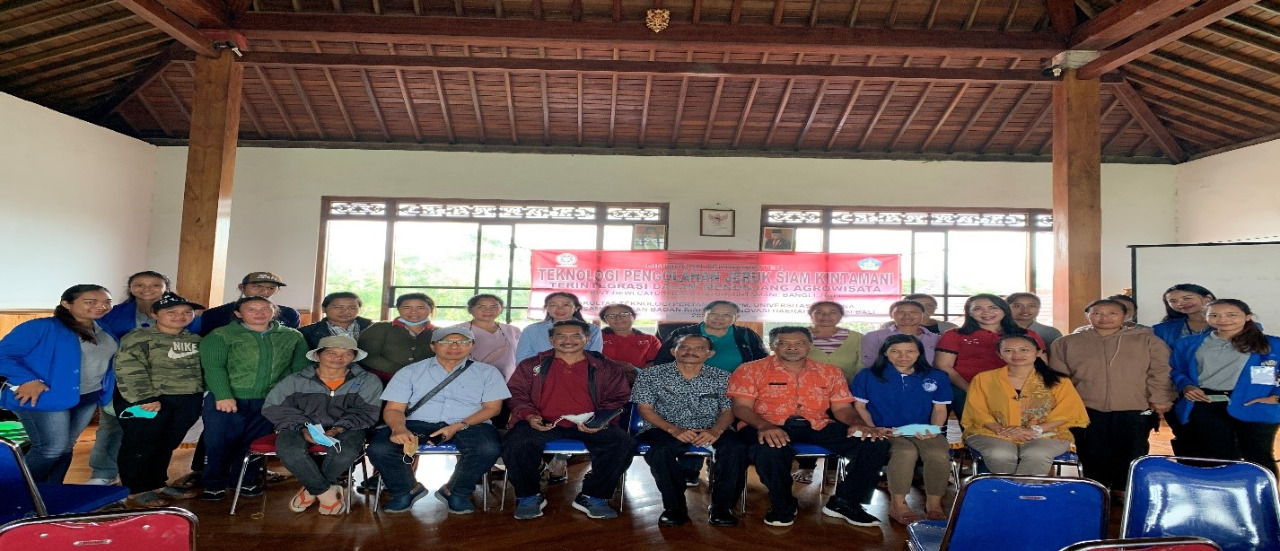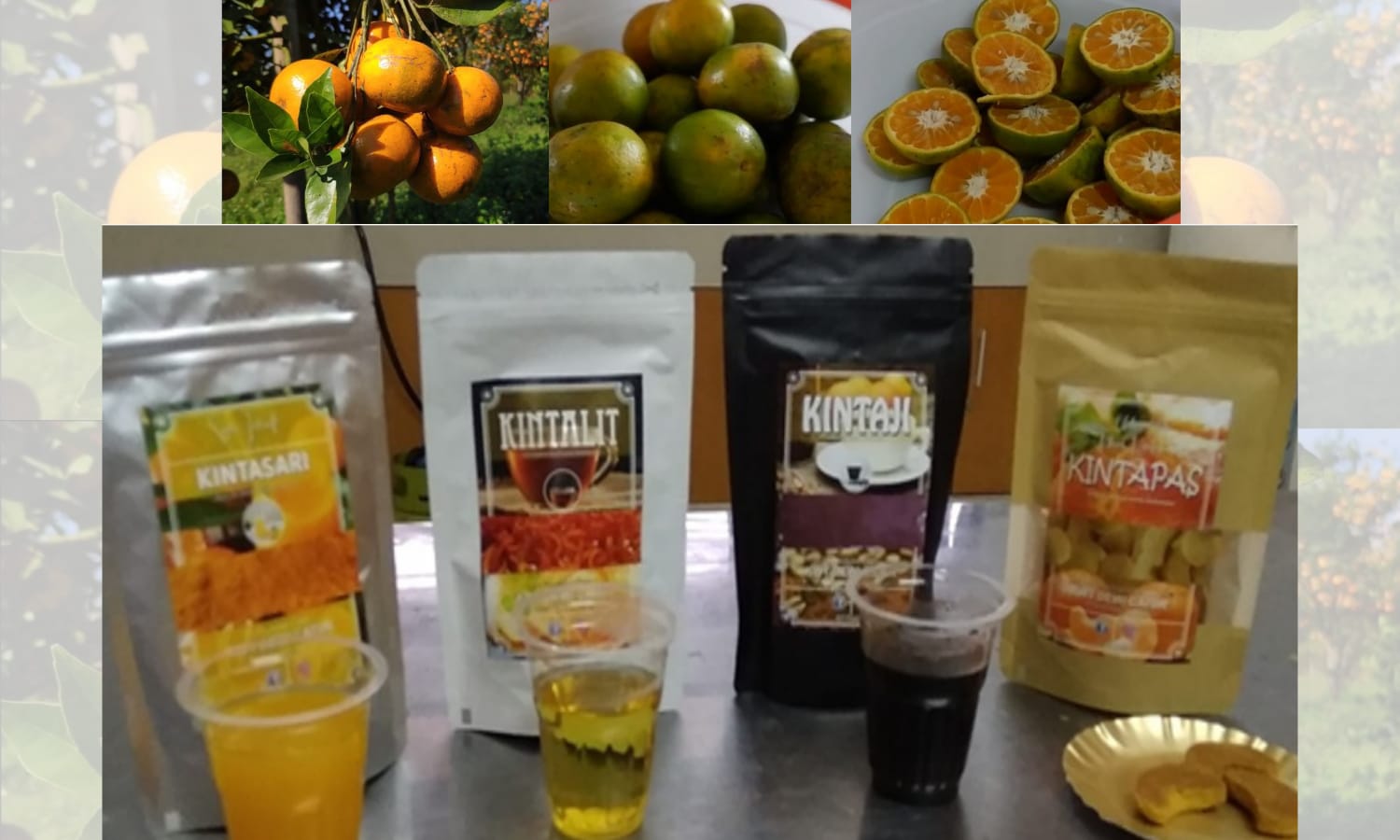Handling Over Production During Harvest, Food Technology Study Program Unud Develops Kintamani Siamese Citrus Fruit Processing Innovation With Zero Waste Process Modeling
Bali has a superior agricultural commodity, namely kintamani Siamese Citrus. So far, Kintamani Siamese citrus fruit is mostly used as a fruit which is mostly consumed fresh. However, it turns out that there are still problems during the harvest season, where prices are very low at farmers due to excess production compared to demand. Food Technology Study Program, Faculty of Agricultural Technology Udayana University conducted a zero-waste process study on the Kintamani Siamese citrus fruit process in collaboration with the Bali Provincial Research and Innovation Agency and LPPM Unud. The research team consisted of Dr. Gusti Ayu Kadek Diah Puspawati, S.TP., M.Si., Prof. Dr. Ir. I Nengah Kencana Putra, M.S., Ir. Putu Timur Ina, M.S., Ir. Gusti Ayu Ekawati, M.S., and Anak Agung Istri Sri Wiadnyani, S.TP., M.Sc.
This study applies the processing of Siamese oranges with a zero waste process model, namely the Kintamani Siamese processing model that utilizes all parts of the citrus fruit into 4 food products at KWT Dewi Catur, Catur Village, Kintamani District, Bangli Regency. The head of the implementing team, Dr. Gusti Ayu Kadek Diah Puspawati, S.TP., M.Si., reported that Kintamani Siamese oranges can be processed from fruit juices, fruit pulp, fruit peels and even fruit seeds. What so far is mostly processed from the juice part, but the rest of the juice from the orange juice produces fruit pulp and can be used as Siamese Kintamani orange biscuits. The peel of the fruit can be processed into herbal teabags for Siamese Kintamani oranges and the orange seeds can be processed into Siamese Kintamani orange mix coffee. The four products after being tested in the laboratory contain components that have the potential as antioxidants which are still needed to improve the immune system during the transition period of the Covid 19 pandemic.
In addition, Dr. Gusti Ayu Kadek Diah Puspawati, S.TP., M.Si., also said that the zero waste processing model can be applied as one of the steps to overcome the problem of low prices on other superior agricultural commodities such as salak and mango. So that it can be a solution in overcoming over-production during the main harvest. Harvested fruit can be processed into derivative products that have a longer shelf life than fresh fruit.
The application of the research results was carried out by conducting direct trainings to KWT Dewi Catur, Catur Village, Kintamani District, Bangli Regency. The process of mentoring and discussion with KWT was carried out to produce processed products from Kintamani Siamese oranges. The four types of products produced are:
1. Kintasari: processing orange juice (orange juice)
2. Kintalit: processing orange peels into herbal tea bags
3. Kintaji: processing orange seeds into Kintamani Siamese orange mix coffee
4. Kintapas: processing orange pulp into biscuits
Dr. Gusti Ayu Kadek Diah Puspawati, S.TP., M.Si., and the team hope that through the collaborative activities that are carried out, hopefully it can be a solution for the community, precisely at KWT Dewi Catur, Catur Village, Kintamani District, Bangli Regency to be able to process all parts of the Kintamani Siamese orange and increase the added value of the Kintamani Siamese orange which is abundant at harvest highway.






